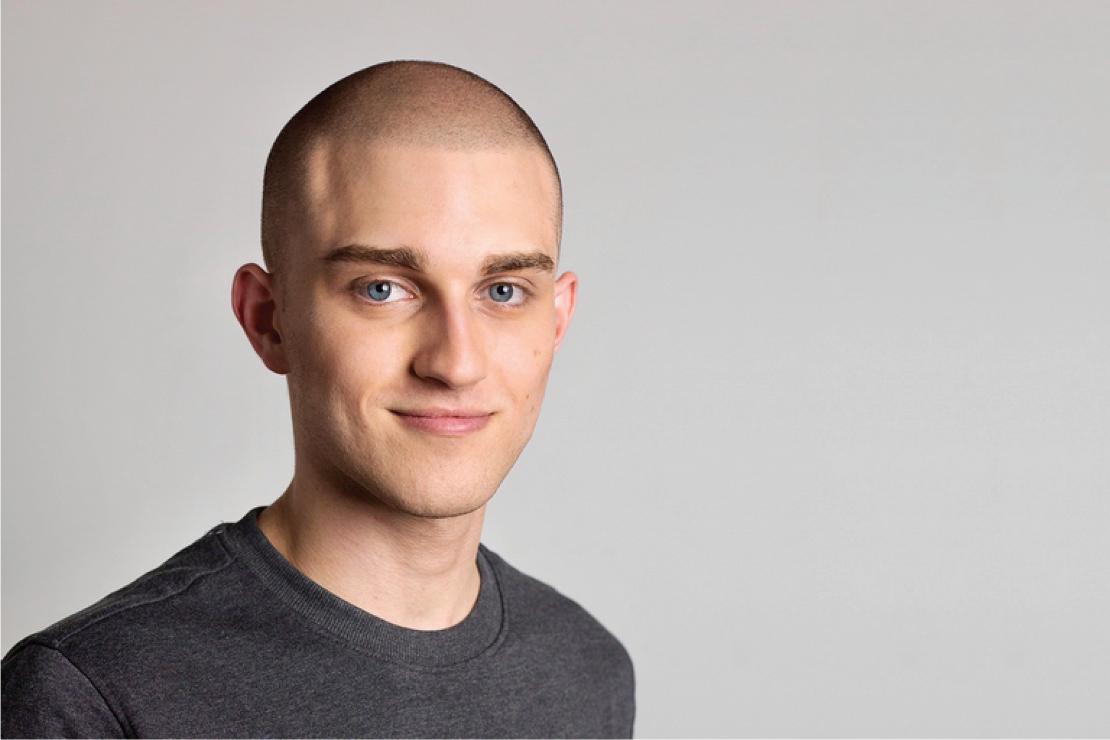Unlocking Value in Healthcare
Apr 28, 2021

By Chris Badaoui, Chief Executive Officer at Troglo (Techstars London)
Healthcare is Failing the LGBTQ+ community
A study published by The Harvard Gazette in 2018 found that one in five LGBTQ adults have avoided seeking care out of a fear of discrimination. This alarming statistic highlights how far we have to go in creating healthcare that truly serves the LGBTQ community. As the broader healthcare sector rapidly evolves, the LGBTQ community could be left behind, due to outdated perspectives that either don’t see their needs or worse, devalue them. To ensure this doesn’t happen, we need a data-driven approach that gathers and synthesises pertinent information that can help identify the specific health needs of these populations. This is a critical first step to acknowledging that there are indeed differences in care needs, and applying a one-size-fits-all approach is not just neglectful, but can have detrimental long-term consequences for the patient.
A New Way of Thinking
The traditional healthcare model is simple: a patient with an illness or physical challenge visits a doctor in a face-to-face setting to receive care. Recently, telemedicine has surged in popularity and prevalence – no doubt spurred by the global COVID-19 pandemic. For patients who are comfortable with interacting with medical professionals over a digital medium, there is a strong business case, as well as a medical case, to be made for the practice of telemedicine.
However, despite the clear benefits, there are also drawbacks associated with the telemedicine model. In particular, telemedicine generally provides a more fragmented offering without a seamless end-to-end patient experience. In addition, the prospect of being matched with medical professionals at random for general care is off putting to many — and when it comes to specialised services relating to one's identity, trust and continuity of care is fundamental in establishing effective care.
Get To Know VIMPROs
Given these drawbacks, a new type of healthcare model has emerged around the concept of Vertically Integrated Micro-providers, or VIMPROs, as coined by Dr Weiß @Heal Capital. As the name implies, these providers deliver end-to-end care solutions for specific patient challenges by integrating cutting-edge technologies that coordinate the healthcare value chain from diagnostics to intervention to ongoing monitoring.
From a patient standpoint, this has distinct advantages over the telemedicine model. For one, telemedicine eliminates direct interaction between medical professionals and patients. Consequently, medical staff can only direct patients to the appropriate medications and treatments instead of making informed recommendations aligned directly with patient needs. There is also little scope for continuing coverage of the same patients. Similarly, from the provider’s standpoint, the conventional telemedicine model allows for limited differentiation, thereby compressing margins. The VIMPROs model, on the other hand, enhances margins through oversight of the complete value chain, and also facilitates patient retention and continuity in care, bringing in stable, repeatable, and scalable revenues.
The Importance of Hyper-Specialisation
A complementary practice that has recently gained attention is super-specialisation. One of the most well-known exponents of this is the Aravind Eye Care System in India that operates on a single mission: to eliminate blindness via cataract surgery. By standardising processes for key operations, a doctor at Aravind is able to perform up to 5x the number of surgeries as the national average through an “assembly line” approach. This approach involves an operating room with one surgeon, but multiple operating tables, equipment, and nursing teams. As soon as the doctor completes the surgery on the first one, they move on to the next patient, who has already been prepared for the surgery by the second nursing team.
This model has transferable applications for the VIMPROs model. Several companies offering digitally-enabled products have thus far recognised the potential of this idea. The recent success of U.S.-based companies like Ro.co. ($500M Series D in 2021), Hims & Hers Health Inc. (IPO in 2021), Manual UK ($30M Series A in 2021), and Folx ($25M Series A in 2021) demonstrates that there is a long runway for growth, and the time is now to accelerate change across other parts of the world.
A Stark Gap in LGBTQ+ Healthcare
A major underserved demographic that a VIMPROs model coupled with super-specialisation can bridge access to healthcare for is the LGBTQ+ community. Historically, LGBTQ+ patients have had significant challenges in receiving an affirmative, inclusive, and respectful environment of care. Stonewall’s LGBT in Britain - Health Report gives us the numbers: almost one in four LGBT people (23%) have at one time experienced discriminatory or negative remarks against LGBT people by healthcare staff. In the last year alone, 6% of LGBT people (and 20% of trans people) have witnessed these remarks. Others have reported outsized wait times, and/or substantial costs of receiving care. The physical and mental health toll that these barriers take on a community that has already experienced a high degree of discrimination and stigma throughout their lives is alarming and in need of urgent correction. A focus on Queer health can advance the agenda of pushing LGBTQ+ rights forward.
The Next Step
Alongside a host of men’s and women’s health-related digital platforms, companies like Folx, and Plume are committed to advancing healthcare access and outcomes specifically for LGBTQ+ communities in the US. Despite the policy advocacy and inclusive activities being pursued to better integrate queer people into the community, and enable them to live openly and authentically without discrimination, harassment, or violence, we believe there is still a long road ahead for change in other areas of the world. Providers should aim to support the propagation of change and develop similar solutions. With the help of technology and venture-backed solutions though, entrepreneurs and activists now hold stronger conviction to execute on shifting necessary change.
About the Author

Christopher Badaoui
Christopher Badaoui is the CEO at Troglo, a platform redesigning sexual and reproductive health for the LGBTQ+ community. Prior to Troglo, Chris developed a passion for technology and design at Techstars and XRC Labs; Parsons New School for Design. Previously, Chris was one of the Founders of Carbyn.io a New York-based consulting company for clients such as the Assemblage and the Minnesota NFL Vikings.

